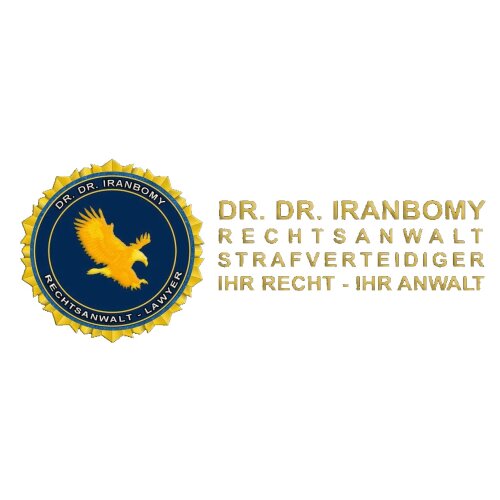Best Adoption Lawyers in Germany
Share your needs with us, get contacted by law firms.
Free. Takes 2 min.
Free Guide to Hiring a Family Lawyer
Or refine your search by selecting a city:
List of the best lawyers in Germany
About Adoption Law in Germany
Adoption in Germany is a legal process through which a child becomes a permanent part of a family different from the child's birth family. German adoption law is primarily governed by the Civil Code (Bürgerliches Gesetzbuch, BGB), which establishes the rights and responsibilities of adoptive parents and adopted children. Adoption aims to provide children without parental care the opportunity for a stable family environment, ensuring their welfare and development.
Why You May Need a Lawyer
While the process of adopting a child can be deeply rewarding, it is often complex and heavily regulated. You may need a lawyer in several situations, including:
- Understanding the legal criteria for eligibility as an adoptive parent.
- Assisting with the preparation of legal documentation and necessary paperwork.
- Guidance through intercountry adoption procedures and compliance with international treaties.
- Representing you in court if necessary, particularly in contested adoptions or if there are complications with biological parents.
- Advising on post-adoption legal matters, such as citizenship and inheritance issues.
- Ensuring adherence to local and federal adoption laws throughout the process.
Local Laws Overview
German adoption laws stipulate several key requirements for prospective adoptive parents:
- Adoptive parents must be at least 25 years old. If the adopting parents are a couple, one partner can be 21 years old if the other is at least 25.
- Married couples must adopt jointly. Single individuals can adopt, but the process may be more rigorous.
- Stepparent adoptions are allowed when the stepparent is married to the biological parent of the child.
- Consent from the biological parents is necessary unless deemed legally capable of withholding such consent.
- The child's well-being is the paramount consideration, with agencies ensuring that adoption is in the best interest of the child.
Frequently Asked Questions
What is the age requirement for adoptive parents in Germany?
At least 25 years old for single adopters; for couples, one partner must be at least 25 and the other at least 21.
Can unmarried couples adopt together in Germany?
No, only married couples or single individuals can adopt.
What is the role of Jugendamt in adoptions?
The Jugendamt (youth welfare office) plays a crucial role in assessing the suitability of adoptive parents and facilitating the placement process.
Can international adoption be processed from Germany?
Yes, international adoptions are possible. However, they are subject to regulations under international law, including adherence to the Hague Convention on Intercountry Adoption.
Is the consent of biological parents mandatory for adoption?
Yes, unless they are unable to legally give consent due to incapacity or absence.
How long does the adoption process take in Germany?
The process can vary but generally takes between 9 months to several years, depending on the complexity of the case.
What happens after adoption in terms of citizenship for foreign-born children?
Adopted children gain the same citizenship as their adoptive parents if specific criteria are met. Legal advice may be required to process this correctly.
Can same-sex couples adopt in Germany?
Yes, following the legalization of same-sex marriage in 2017, same-sex couples have the right to adopt jointly.
What support is available for adoptive families after the adoption is finalized?
Various support services are available, including counseling and parental training from child welfare organizations.
How does the adoption process differ for older children in Germany?
Adopting older children might involve different considerations, such as addressing past trauma or integration into the new family, which may require professional assistance.
Additional Resources
Consider reaching out to the following resources for further assistance in the adoption process:
- Jugendamt (Youth Welfare Office)
- Bundesverband behinderter Pflegekinder (National Association for Disabled Foster Children)
- Family and Social Services of Germany
- Pro Familia (Family Support Services)
- Adoption agencies accredited by the German authorities
Next Steps
If you require legal assistance with adoption in Germany, consider the following steps:
- Consult with a lawyer specializing in family or adoption law to gain a better understanding of your unique situation.
- Prepare all necessary documents with the guidance of your legal counsel to ensure compliance with the local and federal adoption laws.
- Reach out to your local Jugendamt for further procedural assistance and support through the adoption process.
- Utilize available resources and organizations that offer support to prospective adoptive parents for additional guidance.
By taking these steps, you can navigate the adoption process more smoothly and confidently, ensuring the best outcomes for you and the child you wish to adopt.
Lawzana helps you find the best lawyers and law firms in Germany through a curated and pre-screened list of qualified legal professionals. Our platform offers rankings and detailed profiles of attorneys and law firms, allowing you to compare based on practice areas, including Adoption, experience, and client feedback.
Each profile includes a description of the firm's areas of practice, client reviews, team members and partners, year of establishment, spoken languages, office locations, contact information, social media presence, and any published articles or resources. Most firms on our platform speak English and are experienced in both local and international legal matters.
Get a quote from top-rated law firms in Germany — quickly, securely, and without unnecessary hassle.
Disclaimer:
The information provided on this page is for general informational purposes only and does not constitute legal advice. While we strive to ensure the accuracy and relevance of the content, legal information may change over time, and interpretations of the law can vary. You should always consult with a qualified legal professional for advice specific to your situation.
We disclaim all liability for actions taken or not taken based on the content of this page. If you believe any information is incorrect or outdated, please contact us, and we will review and update it where appropriate.
Browse adoption law firms by city in Germany
Refine your search by selecting a city.
















